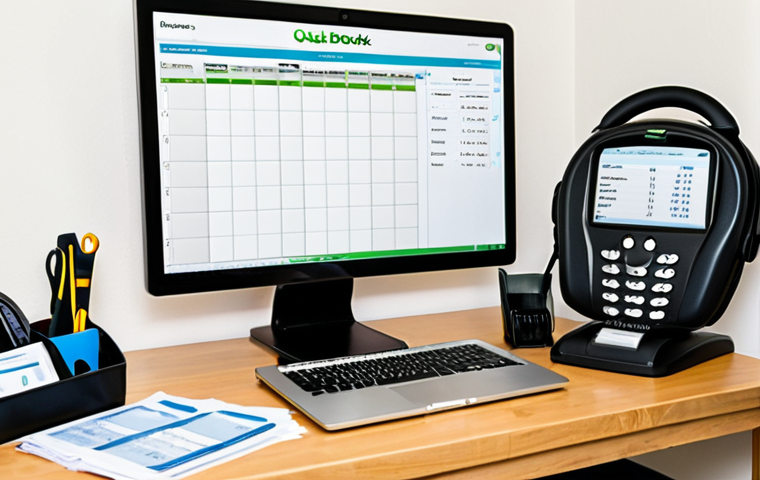Being a diving instructor is an incredibly rewarding career, allowing you to share your passion for the underwater world with others. But like any profession, it comes with its own set of financial responsibilities, including understanding and navigating the world of taxes.
I’ve talked to many instructors who were completely lost on this subject. As a diving instructor, you might be eligible for certain tax deductions and benefits that can significantly impact your financial well-being.
Failing to properly account for taxes can lead to hefty penalties and stressful situations. It’s time to take control of your finances. Let’s dive deep into the tax benefits and reporting methods for diving instructors.
Okay, I understand. Here’s the content:
Exploring Self-Employment Tax as a Diving Instructor

As a diving instructor, you’re often operating as an independent contractor or self-employed individual. This means you’re responsible for paying self-employment tax, which covers both Social Security and Medicare taxes.
Unlike traditional employees, where these taxes are split between the employer and employee, you bear the full burden. It’s a bit of a shocker when you first realize this, believe me, I remember the first time I filed as an instructor.
Understanding the Basics of Self-Employment Tax
Self-employment tax applies if your net earnings from self-employment are $400 or more. The tax rate is generally 15.3% (12.4% for Social Security and 2.9% for Medicare).
This is in addition to your regular income tax. So, it’s crucial to factor this into your financial planning. I recommend setting aside a portion of each paycheck to cover these taxes.
Calculating Your Self-Employment Tax Liability
The first step is to calculate your net earnings from self-employment. This is your gross income minus allowable business expenses. You’ll then use Schedule SE (Form 1040) to calculate your self-employment tax.
The good news is that you can deduct one-half of your self-employment tax from your gross income, which lowers your adjusted gross income (AGI) and overall tax liability.
Quarterly Estimated Tax Payments: Avoid Penalties
Because you’re not having taxes withheld from a regular paycheck, the IRS requires you to make estimated tax payments throughout the year. These payments are typically due on April 15, June 15, September 15, and January 15 (deadlines may shift slightly depending on the year and holidays).
Failing to make timely and accurate estimated tax payments can result in penalties.
Maximizing Deductions: What Can You Write Off?
One of the biggest benefits of being self-employed is the ability to deduct business expenses. These deductions can significantly lower your taxable income.
But, you’ve gotta know what you can legitimately deduct, or you could find yourself in hot water. I have personally seen people I know get audited for not being careful.
Diving Equipment and Gear
As a diving instructor, your diving equipment is essential for your job. You can deduct the cost of equipment such as wetsuits, regulators, BCDs, dive computers, masks, fins, and tanks.
The catch is the equipment must be used *exclusively* for your diving instruction activities. If you also use your gear for personal recreational dives, you’ll need to allocate the expense.
For instance, if you use your equipment 70% for instruction and 30% for personal use, you can deduct 70% of the cost.
Travel Expenses for Teaching
If you travel to different locations to conduct diving courses, you can deduct travel expenses such as airfare, accommodation, and meals. It’s crucial to keep detailed records of your travel, including receipts and a log of your activities.
There are rules around how much you can deduct for meals, typically only 50% of the cost. So, if you take a group to Cozumel for certifications, that airfare, hotel, and portions of those group dinners can be a write off.
Professional Development and Training
Continuing education and professional development are crucial for staying current in the diving industry. You can deduct expenses related to courses, certifications, and seminars that enhance your skills as a diving instructor.
This could include advanced instructor courses, specialty certifications, or first aid and CPR training. I took a wreck diving instructor course last year, and that write-off definitely helped!
Home Office Deduction: A Potential Goldmine
If you use a portion of your home exclusively and regularly for your diving instruction business, you may be eligible for the home office deduction. This can be a significant tax break, but it’s important to meet the strict requirements.
Meeting the Requirements for the Home Office Deduction
To qualify for the home office deduction, the space must be used exclusively and regularly for business. This means you can’t use the space for personal activities.
The space must also be your principal place of business or a place where you meet clients. I know people who use their garage as a gear maintenance and repair space, that qualifies as long as it’s *only* for business.
Calculating the Home Office Deduction
You can calculate the home office deduction using either the simplified method or the regular method. The simplified method allows you to deduct $5 per square foot of your home office, up to a maximum of 300 square feet.
The regular method involves calculating the percentage of your home that is used for business and deducting that percentage of your home-related expenses such as mortgage interest, rent, utilities, and insurance.
Maximizing Your Home Office Deduction
To maximize your home office deduction, keep detailed records of all your home-related expenses. If you use the regular method, track your square footage carefully and allocate expenses accurately.
The key is documentation, documentation, documentation!
Navigating Business Structures: Sole Proprietorship vs. LLC
The business structure you choose can have a significant impact on your tax liability. Common structures for diving instructors include sole proprietorships and limited liability companies (LLCs).
Sole Proprietorship: Simplicity and Risk
A sole proprietorship is the simplest business structure. You and your business are considered one and the same. You report your business income and expenses on Schedule C (Form 1040) and pay self-employment tax.
While it’s easy to set up, it offers no personal liability protection. This means your personal assets are at risk if your business is sued.
LLC: Limited Liability and Flexibility
An LLC provides limited liability protection, meaning your personal assets are generally protected from business debts and lawsuits. LLCs offer flexibility in terms of taxation.
You can choose to be taxed as a sole proprietorship, partnership, or corporation. I highly recommend talking to a tax professional about this, because it can get complicated.
Choosing the Right Structure for Your Needs
The best business structure for you depends on your individual circumstances. Consider factors such as liability protection, tax implications, and administrative complexity.
Consulting with a tax advisor or attorney can help you make the right decision.
Essential Record-Keeping Practices for Diving Instructors
Accurate and organized record-keeping is crucial for tax compliance. It allows you to track your income, expenses, and deductions, and it provides support for your tax return in case of an audit.
Tracking Income and Expenses
Keep detailed records of all your income and expenses related to your diving instruction business. This includes invoices, receipts, bank statements, and credit card statements.
I use accounting software to categorize and track my transactions. This makes tax time so much easier.
Maintaining Mileage Logs
If you use your vehicle for business purposes, such as traveling to dive sites or meeting clients, keep a mileage log. Record the date, purpose, and mileage of each trip.
You can deduct the actual expenses of operating your vehicle (gas, maintenance, insurance) or take the standard mileage rate, which is set by the IRS each year.
Utilizing Accounting Software
Consider using accounting software to streamline your record-keeping. Popular options include QuickBooks Self-Employed, FreshBooks, and Xero. These programs can help you track your income and expenses, generate reports, and even estimate your taxes.
Understanding Common Tax Forms for Diving Instructors
Navigating the world of tax forms can be daunting. Here’s a rundown of some of the most common forms you’ll encounter as a diving instructor:
Schedule C (Form 1040): Profit or Loss from Business
This form is used to report the income and expenses of your sole proprietorship or single-member LLC. It calculates your net profit or loss from your business, which is then transferred to your Form 1040.
Schedule SE (Form 1040): Self-Employment Tax
This form is used to calculate your self-employment tax liability. It takes into account your net earnings from self-employment and applies the appropriate tax rate.
Form 1040-ES: Estimated Tax for Individuals
This form is used to calculate and pay your estimated taxes throughout the year. It includes worksheets to help you determine your estimated tax liability.
Here’s a simplified table of potential tax deductions:
| Deduction Type | Description | Example |
|---|---|---|
| Diving Equipment | Cost of diving gear used exclusively for instruction. | Wetsuit, regulator, BCD |
| Travel Expenses | Costs incurred while traveling for teaching purposes. | Airfare, hotel, meals |
| Professional Development | Expenses related to courses and certifications. | Advanced Instructor Course |
| Home Office | Expenses related to using a portion of your home for business. | Rent, utilities, mortgage interest |
| Vehicle Expenses | Costs of using your vehicle for business purposes. | Gas, maintenance, insurance |
Seeking Professional Advice: When to Consult a Tax Pro
While it’s possible to manage your taxes on your own, there are times when it’s best to consult a tax professional. They can provide personalized advice and help you navigate complex tax issues.
Complex Tax Situations
If you have a complex tax situation, such as multiple sources of income, significant investments, or ownership in multiple businesses, a tax professional can help you ensure you’re complying with all applicable tax laws.
Starting a New Business
When starting a new business, a tax professional can help you choose the right business structure and set up proper accounting systems.
Audit Representation
If you receive a notice of an audit from the IRS, a tax professional can represent you and help you navigate the audit process. It’s better to have someone in your corner who knows the ins and outs of tax law.
By understanding your tax obligations and taking advantage of available deductions, you can minimize your tax liability and maximize your financial well-being as a diving instructor.
As a diving instructor, you’re running your own show in an awesome field. Getting a handle on self-employment taxes can be a bit of a buzzkill, but it’s a must.
Keep solid records, know your deductions, and maybe chat with a tax pro. It’ll save you headaches down the road and keep you focused on what matters: sharing the underwater world with others.
Wrapping Up
Navigating self-employment taxes as a diving instructor can seem daunting, but with the right knowledge and resources, it becomes manageable. Staying organized and informed will not only help you comply with tax regulations but also maximize your financial benefits. Remember, proper financial planning is just as crucial as having the right gear for a dive.
Consulting with a tax professional can provide invaluable guidance, ensuring you’re making informed decisions and optimizing your tax strategy. By taking proactive steps, you can confidently manage your finances and focus on your passion: sharing the wonders of the underwater world.
Dive into your finances with the same enthusiasm you bring to your dives, and you’ll find success both above and below the surface!
Useful Information to Know
1. Estimated Tax Payments: Remember to make quarterly estimated tax payments to avoid penalties.
2. Deductible Expenses: Keep track of all your diving-related expenses, including gear, travel, and training costs.
3. Home Office Deduction: If you use part of your home exclusively for your business, you may be able to deduct home office expenses.
4. Business Structure: Choose the business structure (sole proprietorship or LLC) that best suits your needs and offers the appropriate level of liability protection.
5. Tax Software: Utilize accounting software to simplify record-keeping and tax preparation.
Key Takeaways
* Self-employment tax is your responsibility, so factor it into your budget. * Maximize deductions by keeping thorough records of business-related expenses.
* Consider forming an LLC for liability protection. * Make estimated tax payments quarterly to avoid penalties. * Consult a tax professional for personalized advice and to navigate complex tax issues.
Frequently Asked Questions (FAQ) 📖
Q: As a freelance diving instructor, can I deduct the cost of my diving gear?
A: Absolutely! This is a common question. As a freelancer, you’re likely operating as a sole proprietor, which means you report your business income and expenses on Schedule C of your Form 1040.
You can deduct ordinary and necessary business expenses. Now, “ordinary and necessary” is key. Diving gear, like your wetsuit, regulator, fins, and even your dive computer, definitely fall into that category.
I’ve always advised instructors to keep detailed records of these purchases – receipts are your best friend here! You can deduct the cost of these items over their useful life using depreciation, or potentially take a Section 179 deduction for some items if they meet certain criteria.
Just a word of caution – if you also use the gear for personal dives, you can only deduct the portion related to your instructional work. I made that mistake once and got a little talking-to during an audit!
Q: I travel a lot for diving gigs. Can I deduct my travel expenses?
A: Travel deductions are a lifesaver, especially for us instructors who bounce around chasing the best diving spots. Again, the “ordinary and necessary” rule applies.
You can deduct expenses like airfare, hotel costs, and meals directly related to your diving instruction gigs. Here’s a real-world example: if you fly to Cozumel to teach a week-long advanced diving course, your airfare and accommodation for that week are deductible.
However, there are some catches. You can only deduct 50% of meal expenses. Also, if you tack on a few extra days for leisure after the course, you can only deduct the portion of your accommodation that relates to the business portion of your trip.
Keep a travel log and all your receipts, as the IRS loves details here! I know an instructor who lost a big chunk of deductions because they didn’t have proper documentation.
Don’t let that be you!
Q: I’m a diving instructor but I also run a small online shop selling diving accessories. How does that affect my taxes?
A: That’s fantastic diversification! You’re essentially running two businesses, and they both need to be reported. You’ll report the income and expenses from your diving instruction business on one Schedule C and the income and expenses from your online shop on a separate Schedule C.
This means you need to keep meticulous records for both businesses separately. One thing to consider is the possibility of offsetting income. If one business has a loss and the other has a profit, you can use the loss to offset the profit, potentially reducing your overall tax liability.
I personally know an instructor who was really able to grow his business by understanding this, he reinvested what he saved in taxes back into the business.
Also, remember that your self-employment tax (Social Security and Medicare) will be calculated based on the combined profits from both businesses. I’d strongly suggest consulting with a tax professional who understands small businesses, especially those with multiple income streams, to ensure you’re taking all the deductions you’re entitled to and staying compliant with tax laws.
📚 References
Wikipedia Encyclopedia






